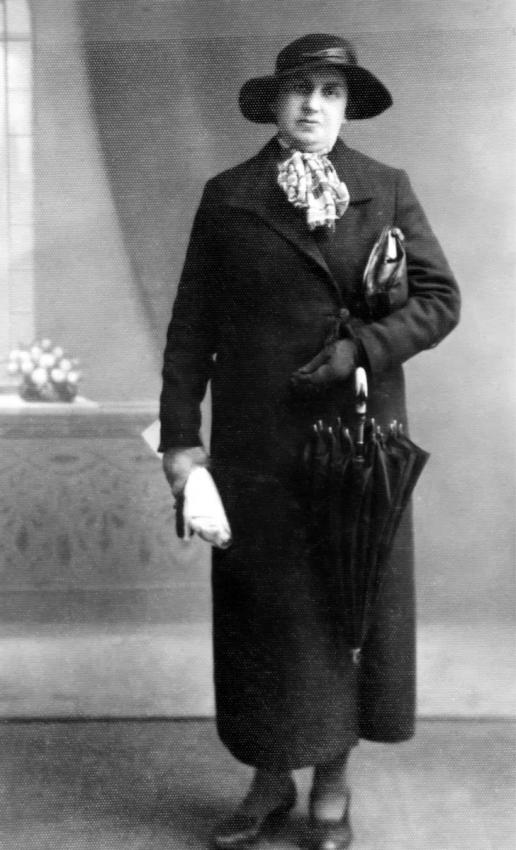Piotrków Trybunalski, an administrative capital in the province of Łódź, was most likely established in the 13th century. The Jewish community in the city was founded later, and can be dated back to the 16th century.
During the first few hundred years of the city’s existence, Jews were not allowed to live within the city walls. They entered Piotrków Trybunalski in order to trade, when the city hosted a session of the Polish Sejm (the lower house of parliament), or when a special tribunal of the court was held (hence the name ‘Trybunalski’). However, a few Polish noblemen built houses within the city walls that they rented to Jews; these noblemen advanced the right of their tenants to live within the city. In this manner a small Jewish community was initially established in Piotrków Trybunalski.
The Jewish community in the city was severely damaged during blood libels and pogroms carried out both by the local population and by invading forces. In the 17th century, the Khmelnitsky Pogrom saw the Jewish community all but totally destroyed, but by the end of the century Jews were again allowed to return to the city, taking up residence within the walls, and establishing community institutions as well as businesses. During the 18th century the city was damaged in a number of cataclysmic events, including a major earthquake and a series of fires. In addition to the damage incurred by these events, the Jewish community was also wracked by recurring pogroms. The synagogue was destroyed during one of these pogroms in 1740. The synagogue building was renovated at the turn of the century, and the building works provided an opportunity for expansion: a beit midrash (study hall) as well as another prayer hall were added to the existing structure.
With the onset of the Prussian occupation at the end of the 18th century, Jews were obliged to pay higher taxes than non-Jewish residents of the city. At this time a day school for Jewish children was established. The school taught German and mathematics, yet was active for only ten years before it closed.
During the 19th century, now under the control of the Russian Empire, the Jewish community established institutions for social aid and welfare – among them a chevra kadisha (Jewish burial society), a bikur cholim society to aid Jews who had fallen ill, a fund to support those who had been hospitalized, and a general charity fund. Most of the members of the Jewish community dealt in commerce and manufacture. The community had a diverse membership,including affluent assimilated Jews, Hasidim and Mitnagdim (opponents of the Hasidic movement). Piotrków Trybunalski was home to famous rabbis and religious scholars who wrote Jewish legal texts; among them were Rabbi Dov Berish Edelstein, a descendant of the Rama (Rabbi Moses Isserles); Rabbi Hayim Eliezer Waks, who preached support for the Jewish settlement in Eretz Israel (Mandatory Palestine), which he even went so far as to visit, and the Hasidic Rabbi Simcha Yair Rosenfeld. A number of other Hasidic leaders were also residents of the city, among them Rabbi Meir Menachem Finkler (d. 1912), who spoke Hebrew and used the donations collected by his followers to support Jewish settlement in Eretz Israel.
In the middle of the 19th century, Piotrków Trybunalski became the capital of the province of Łódź, and several administrative and government institutions were built in the city, including a high court, government offices, a royal bank and a military base. Subsequently, the number of residents increased and the city flourished. During this period the first Jewish school to pursue the Enlightenment educational program was opened. The school was headed by Adolf Leiberg, a graduate of the Warsaw Rabbinical Seminary.
At the end of the 19th century, the first industrial factories were built in the city. Most of the factories were owned by Jews, as were most of the city’s stores. During this period the Jewish community constructed a second large synagogue, where they prayed according to the German Jewish tradition, and established a number of new charitable institutions, among them the Dobroczynność charity company, a mutual aid fund, the Bikur Cholim and Leinat Tzedek institutions that aided sick Jews, a chevra kadisha (Jewish burial society), a senior citizens' home and more.
At the end of the 19th century, a branch of the Hibat Zion movement was established in Piotrków Trybunalski, followed by a branch of the Bund in the early years of the 20th century. Jews from Piotrków Trybunalski were among the first members of the Polish Socialist Party.

